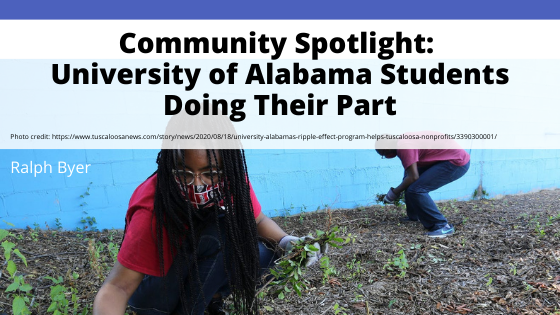The COVID-19 pandemic has seen a number of events, campaigns, and programs significantly scaled back. The University of Alabama’s “Ripple Effect” volunteer program is no exception. The program usually sends around 1,000 incoming freshmen out into the local Tuscaloosa community, engaging with local nonprofits to help make a difference. This year, virus-related concerns have brought participation down to only seventy students. While the number of participants might be a fraction of the usual total, this year’s contributors are proving that even a small group of people can do a world of good for their community.
The Ripple Effect program is in its twenty-seventh year at the acclaimed university. School administrators say the program simultaneously helps the local community while teaching the young participants the value and meaning of service. It also serves as a useful bridge between the city of Tuscaloosa and the massive state university that calls it home.
This year, the program certainly looks different than it has in the past. Not only are there fewer participants, but all volunteers are wearing masks and maintaining social distance to prevent the spread of the novel coronavirus.
Despite these changes, the program still figures to have a major impact in the community. The students were spread among six local sites, including a food bank, an arboretum, and an arts center for the autistic. By doing simple tasks like sorting clothes and weeding gardens, the students demonstrate their integration into their new community. Volunteering represents the fulfillment of civil duty, which places the students within the social fabric of their new hometown.
Many of the students come from distant corners of the country and the world. Having the opportunity to arrive early in Tuscaloosa and help out their new community prepares them for the four years ahead. It also makes them feel good about themselves and their upcoming years at the university.
The students themselves spoke highly of the program. They were happy to be able to help despite the uncertain conditions caused by the pandemic, and were eager to see their efforts benefit the people around them.
Community service might be harder during a pandemic, but it’s certainly not impossible. Just ask the men and women of “Ripple Effect.”
